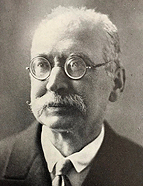

This activity signalled Fortunato de Almeida ’ s Catholic militancy, which should be seen in the context of integral Catholicism, an identitarian cornerstone, coinciding with nationalist tendencies where the Catholic factor would be an essential element and where participation in the life of political parties would tend to be instrumental. This militancy was also expressed in his work as a polemicist, which took the form, among other things, of a critique of the thesis upheld by Afonso Costa on Leo XIII ’ s encyclical Rerum Novarum (1891). With A questão social: reflexões à dissertação inaugural do Senhor Afonso Costa [ The social question: reflections on Mr Afonso Costa’ s inaugural dissertation ] (1895, the same year when the thesis of the future leader of the Partido Republicano Português [Portuguese Republican Party] was defended), he returned to a controversial topic that was hot at the time: the place and political framework of the papacy, as well as the Catholic claim to its freedom, which would require the exercise of the temporal power of the bishop of Rome over an autonomous territory; Fortunato de Almeida had dealt with the topic when he translated A verdade sobre a questão romana [ The truth about the Roman question ] in 1890 .
After completing his university studies, he took up a teaching career, establishing himself professionally after competitive examinations as a teacher at the Central Secondary School of Coimbra, later José Falcão Secondary School . In this capacity, he was part of the teaching staff of the Teacher Training Course , in charge of the historical and geographical sciences section .
He divided his activity between teaching and historiographical production, areas that mutually influenced each other, as can be seen from the list of his publications, which amount to a significant number. He had shown an inclination and appetite for historiography since at least his university years. He had not yet finished his bachelor’s degree in L aw when, at the age of 25, he published a significant monograph entitled O Infante de Sagres [ The Prince of Sagres ] (1894). A laudatory memoir of this member of the illustrious generation, it was awarded one of the prizes in the competition held on the occasion of the fifth centenary of D. Henrique’s birth. This first historiographical endeavour was clearly influenced by Oliveira Martins, who, along with Pinheiro Chagas and Luciano Cordeiro, was on the jury of the competition. He would later move away from Oliveira Martins ’ influence when it came to his conception of what a historian ’ s work should be , just as he moved away from the epic character that emerged from his portrait of D. Henrique , as well as the fantasies about the supposed S chool of Sagres. Although nuanced, the view of the Portuguese pioneering spirit in maritime expansion that he espoused in this study , even though it was a hypothesis that had been questioned for a long time, remained in his later production, betraying concerns for national exaltation – at the time pervasive in various political and intellectual quarters – a theme he returned to in a different form with La découverte de l’Amérique: Pierre d’Ailly et Christophe Colomb: les voyages des portugais vers l’Ouest pendant le XVe siècle [ The d iscovery of America: Pierre d’ Ailly and Christopher Columbus: Portuguese voyages to the West in the 15th century] (1913).
This work is financed by national funds through FCT - Foundation for Science and Technology, I.P, in the scope of the projects UIDB/04311/2020 and UIDP/04311/2020.
